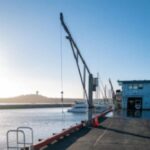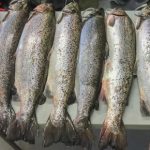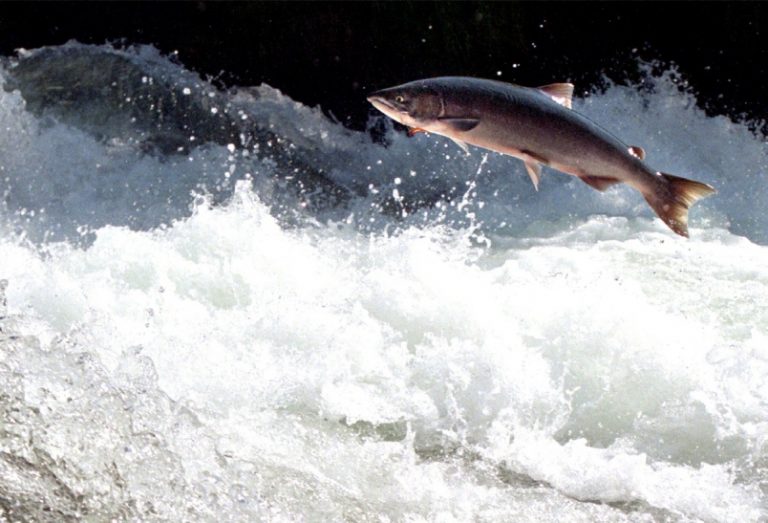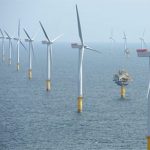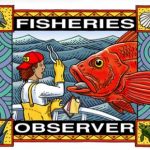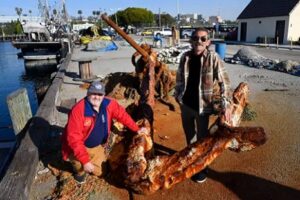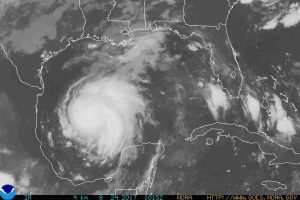Tag Archives: World Bank
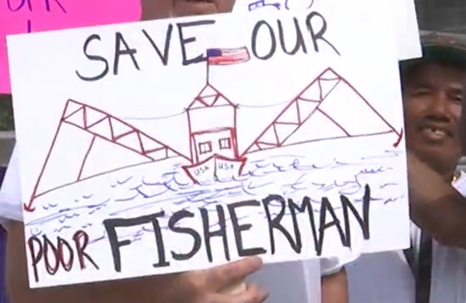
Save Our Shrimpers Act reintroduced to prevent taxpayer dollars from being used to fund foreign shrimp
Recent findings by the Southern Shrimp Alliance uncovered that United States taxpayer dollars were being used to finance foreign shrimp operations through international financial institutions. Cheri Blanchard is a Louisiana board member with the Southern Shrimp Alliance. “We find these situations like we’ve been ringing the bell about the World Bank and about international financing going into foreign shrimp aquaculture and with taxpayer money,” said Blanchard. “The value of U.S. Shrimp has been cut in half from 2021 to 2023, and it’s still about that value because people have had to tie up their boats,” she said. Video, more, >>CLICK TO READ<< 06:08
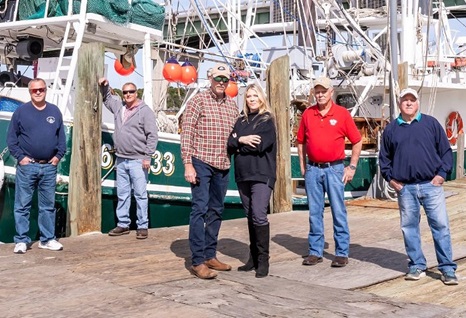
Coastal Georgia Shrimping: A new season of uncertainty, possibilities and hope
In a word, “difficult,” said Dee Kicklighter of their most recent shrimping season. Kicklighter, who has worked with Mathews for about eight years, has seen first-hand how the unpredictability of the business can be costly. “You plan for something to be one price, and then the next week you come back, and it could be potentially thousands of dollars more, depending on what you’re dealing with,” he said of fluctuating prices, including fuel. Over the years, Mathews said the ever-changing cost of fuel has taken a toll on the number of shrimpers in the industry. It’s not just Georgia shrimpers contending with the negative effects from imports. North Carolina, Texas, Louisiana, Florida and other coastal states are also feeling the friction of narrowing profit margins that threaten their way of life. Photos, more, >>click to read<< 09:15
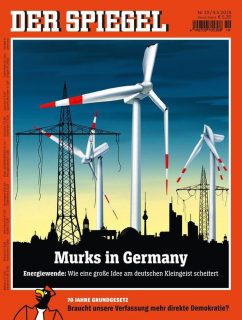
The Reason Renewables Can’t Power Modern Civilization Is Because They Were Never Meant To
Over the last decade, journalists have held up Germany’s renewables energy transition, the Energiewende, as an environmental model for the world. “Many poor countries, once intent on building coal-fired power plants to bring electricity to their people, are discussing whether they might leapfrog the fossil age and build clean grids from the outset,” thanks to the Energiewende, wrote a New York Times reporter in 2014. With Germany as inspiration, the United Nations and World Bank poured billions into renewables like wind, solar, and hydro in developing nations like Kenya. But then, last year, Germany was forced to acknowledge that it had to delay its phase-out of coal, and would not meet its 2020 greenhouse gas reduction commitments. It announced plans to bulldoze an ancient church and forest in order to get at the coal underneath it. >click to read< 21:49
Under the Global Pew Manipulation: The deep-sea fishing, a new geopolitical issue?
 A huge operation to geostrategic nature is conducted to confiscate vast maritime and ocean spaces for the exclusive benefit of American interests. Cette manipulation est relayée en France et dans le monde par des ONG en relation étroite avec les acteurs américains de cette entreprise. This manipulation is relayed in France and worldwide by NGOs closely with American actors of this business. Read more about the Pew influence and Ocean Grabbing here 15:38
A huge operation to geostrategic nature is conducted to confiscate vast maritime and ocean spaces for the exclusive benefit of American interests. Cette manipulation est relayée en France et dans le monde par des ONG en relation étroite avec les acteurs américains de cette entreprise. This manipulation is relayed in France and worldwide by NGOs closely with American actors of this business. Read more about the Pew influence and Ocean Grabbing here 15:38
Global Ocean Commission (Pew): Race to the bottom of the ocean must end
The human footprint on the ocean, from the shoreline to the deepest abyss, is growing.,,With agricultural land under threat from climate change, it has never been more vital to our long term food security that we combat chronic overfishing, illegal fishing and worsening pollution that are pushing fish stocks to the point of collapse. Read more here if you can stand it! 08:02
Banking on Wealth? by Menakhem-Ben Yami
 Current trends in Western fisheries economics, as exemplified by the position of the World Bank, religiously promote free markets for fishing rights During the last decade, the World Bank (WB) has been showing an increasing interest in world fisheries. In 2005, the WB, along with key donors and stakeholders, created the Global Program on Fisheries (GPO-PROFISH) and in 2009, to amplify its work in fisheries, another global partnership with the fishing industry, the Alliance for Responsible Fisheries (ALLFISH). Read more here 13:37
Current trends in Western fisheries economics, as exemplified by the position of the World Bank, religiously promote free markets for fishing rights During the last decade, the World Bank (WB) has been showing an increasing interest in world fisheries. In 2005, the WB, along with key donors and stakeholders, created the Global Program on Fisheries (GPO-PROFISH) and in 2009, to amplify its work in fisheries, another global partnership with the fishing industry, the Alliance for Responsible Fisheries (ALLFISH). Read more here 13:37
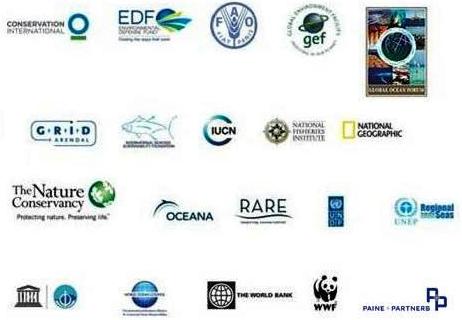
The Corporate Take-Over of Fisheries Policy Making – Click Here
In the past couple of years a number of international conferences and gatherings of key policy makers, corporate representatives and international NGOs have taken huge strides in setting the global agenda in fisheries policy. A worrying pattern has begun to emerge: the interests of small-scale fisheries peoples are consistently sidelined as representative organisations are rarely invited and, if so, are barely listened to. This article will run through some of the most recent events, and documents how a corporate take-over of fisheries policy is taking place. Read more here 16:08
Is the World Bank among the prophets? – Menakhem Ben-Yami
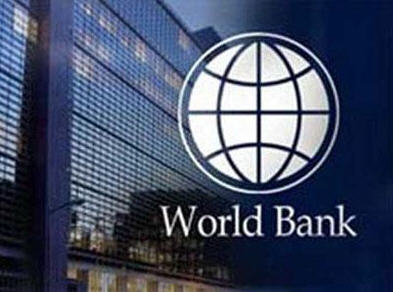 A new 80-page World Bank report entitled ‘FISH TO 2030: Prospects for Fisheries and Aquaculture’ – available for free online on the World Bank and FAO websites – represents a global view of fish supply and demand generated by an improved International Model for Policy Analysis of Agricultural Commodities and Trade (IMPACT). Based on trends in the production of fishing and aquaculture and in fish consumption, it produced – with the help of a multitude of graphs and tables – projections of global fish supply and demand all the way to 2030. In 16 years from now, my younger readers will be able to see how good it was. The report,,, Read more here 07:16
A new 80-page World Bank report entitled ‘FISH TO 2030: Prospects for Fisheries and Aquaculture’ – available for free online on the World Bank and FAO websites – represents a global view of fish supply and demand generated by an improved International Model for Policy Analysis of Agricultural Commodities and Trade (IMPACT). Based on trends in the production of fishing and aquaculture and in fish consumption, it produced – with the help of a multitude of graphs and tables – projections of global fish supply and demand all the way to 2030. In 16 years from now, my younger readers will be able to see how good it was. The report,,, Read more here 07:16
Panel report sets best course for fisheries (and what a Panel it was!)
 Taking the discussion to the world’s oceans, it would make sense, then, to see CEOs of seafood corporations — no strangers to addressing efficiency in their operations — collaborating with leading voices in conservation and environmental protection. The products of such a meeting of the minds would be extraordinary, assuming that these leaders in their respective fields could stand to be in the same room with each other for more than five minutes. (but why wouldn’t they, with the exception of Hilborn? These ENGO “Icons” are corporatist, privatizing parasites that understand the REAL buzzword: RETURN ON INVESTMENT) more@ss.com Report liked here – Global Partnership for Oceans 11:45
Taking the discussion to the world’s oceans, it would make sense, then, to see CEOs of seafood corporations — no strangers to addressing efficiency in their operations — collaborating with leading voices in conservation and environmental protection. The products of such a meeting of the minds would be extraordinary, assuming that these leaders in their respective fields could stand to be in the same room with each other for more than five minutes. (but why wouldn’t they, with the exception of Hilborn? These ENGO “Icons” are corporatist, privatizing parasites that understand the REAL buzzword: RETURN ON INVESTMENT) more@ss.com Report liked here – Global Partnership for Oceans 11:45
Insight: Comeback cod lessens gloom over emptying oceans
 Just over six years ago, an article in the U.S. journal Science projected that all fish and seafood species, on current trends, would collapse by 2048. Read more here
Just over six years ago, an article in the U.S. journal Science projected that all fish and seafood species, on current trends, would collapse by 2048. Read more here






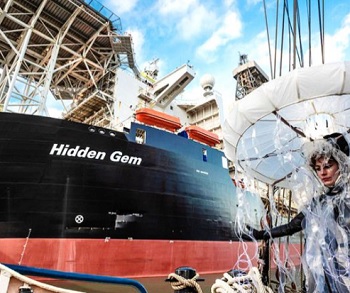
![environmental-watchdog[1]](https://fisherynation.com/wp-content/uploads/2012/09/environmental-watchdog1.jpg)



























